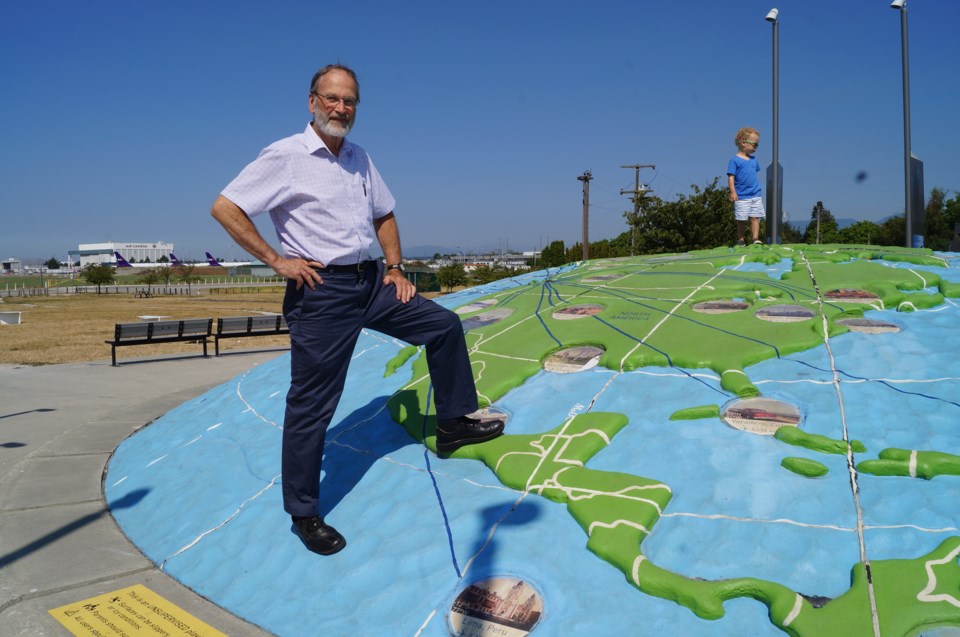Even if the entire global population stopped polluting the world today, there could still be 30 years of climate change ahead.
At least that’s what William Rees, professor emeritus at the University of British Columbia, believes. According to him, there’s a 20 to 30 year lag between the cause and effects of climate change, and instead of greenhouse gas emissions stopping or even slowing down, they’re currently being released at an increasing rate.
“The future is unfolding at an unbelievably, mind-blowingly fast pace and yet because we’re caught up in the moment we don’t really fully understand the implications of that simple reality,” said Rees, during his keynote address last Thursday at Kwantlen Polytechnic University’s Place-Based Food Systems Conference, which brought together speakers from across Canada and the United States to discuss what it would look like to have region-based food systems.
“What we take to be the norm is the single most abnormal…period in human history,” said Rees, who came up with the concept of the “ecological footprint” to measure sustainability (based on eating, consumer, travel and living space habits).
According to Rees, humans are “liquidating the natural capitol” of the planet including soils, fish stocks and forests at an unprecedented rate.
“We’ve reached the point where we are now consuming the products of most ecosystems faster than nature can regenerate and dumping wastes into the ecosphere faster than natural systems can assimilate and reprocess them,” Rees said.
“That is the definition of unsustainable overshoot.”
For Rees, this overconsumption and ongoing push towards globalization – particularly when nations only produce what can yield the highest profit, and trade with other nations to acquire everything else – has led to communities around the world losing their food independence and connection to food systems.
“The conservation of arable land (is being) tossed out the window. Around here it’s a constant struggle to keep the integrity of the Agricultural Land Reserves because the development pressures are always there, telling us that we can always import food from someplace else,” Rees said. “At least 34 countries are already unable to produce most of their own food.”
Rees also pointed out that by 2050, projections suggest that more than half of the world’s population will rely on imported food and that in southwest B.C., recent studies have shown that the region is only 40 per cent “food self-reliant.”
“Think about cities in this context,” Rees said. “Cities are the product of abundant fossil fuel and the capacity to import food from an increasingly global hinterland.”
For Rees, it’s crucial that communities simplify and localize their food systems so they can become more independent.
“We have to learn to get back into the rhythm of the ecosystems that sustain us,” he said. “Most people today have no…psychological connection to the landscape that supports them.”
During Rees’s keynote, one audience member asked what could be done to address these significant, and quickly escalating climate issues.
“Well that’s what we’re here to discuss…this whole meeting is called precisely because I think we’re beginning to wake up to the nature of these kinds of realities,” Rees said of the conference.
“We have an opportunity…to re-examine what it is that we are doing and to put that in the context of the mind-blowing acceleration of events that are almost in the process of overtaking us as we speak.”



